- Dra. Magdalena Aguiló Díaz
- Dr. Ramon Angel Alvarez Puebla
- Dra. Maria Besora Bonet
- Dra. Maria Biosca Brull
- Dr. Jordi Carbó Martín
- Dr. Joan Josep Carvajal Martí
- Dra. Carla Casadevall Serrano
- Dra. Yolanda Cesteros Fernández
- Dra. Anna M- Clotet Romeu
- Dr. Cornelis De Graaf
- Dr. Francesc Díaz González
- Dra. Montserrat Diéguez Fernández
- Dra. M. Elena Fernández Gutiérrez
- Dra. Josefa Gavaldà Martínez
- Dr. Cyril Godard
- Dr. Luca Guerrini
- Dr. Bahareh Khezri
- Dr. Xavier López Fernández
- Dra. Anna M. Masdeu Bultó
- Dr. Jaume Masons Bosch
- Dr. Xavier Mateos Ferré
- Dr. Òscar Pàmies Ollé
- Dr. Nicolas Pazos Perez
- Dr. Josep Maria Poblet Rius
- Dra. M. Cinta Pujol Baiges
- Dra. M. Del Mar Reguero De La Poza
- Dr. Josep Manel Ricart Pla
- Dr. Antoni Rodríguez Fortea
- Dra. Núria Ruiz Morillas
- Dr. Josep Xavier Ruiz Martí
- Dr. Mireia Segado Centellas
- Dra. Rosa M. Solé Cartañà
Magdalena Aguiló Díaz (Catedràtica de Universitat)
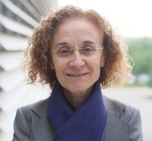
magdalena.aguilo@urv.cat
Ramón Angel Alvarez Puebla (Associate Professor)

ramon.alvarez@urv.cat
Maria Besora Bonet (Professora Lectora)
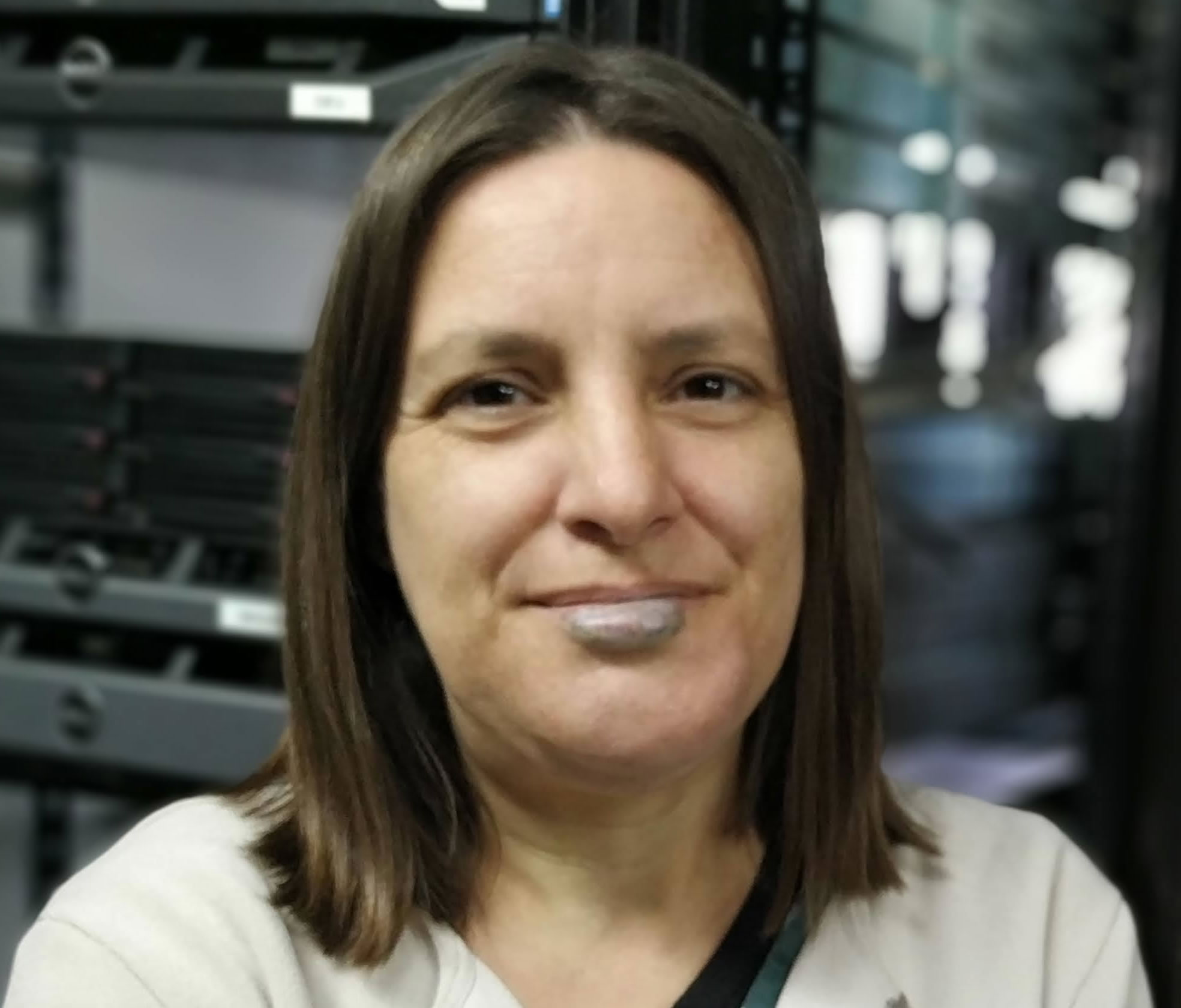
PhD on Computational and Theoretical Chemistry. Dr. Maria Besora received her PhD from the Universitat Autònoma de Barcelona under the supervision of Prof. Agustí lledós and Prof. Feliu Maseras, where she mainly studied the formation of dihydrogen complexes. She did two research stays at the Université de Montpellier II (in Prof. Odile Eisenstein's group) and at University of York (in Prof. John McGrady's group). After a period of post-doc at the University of Bristol (UK) with Prof. Jeremy Harvey studying spin-forbidden reactions, she received a Juan de la Cierva grant and moved to the Institute of Chemical Research of Catalonia (ICIQ) to work at the group of Prof. Feliu Maseras. At the end of 2018, she moved to the Universitat Rovira i Virgili (Tarragona).
Research lines: His scientific interests focus mainly on the study of reaction mechanisms and the improvement of catalytic processes by means of computational chemistry tools, as well as on the application of statistical techniques to solve chemical problems.
Teaching: Degree in Chemistry (degree in English): "Thermodynamics and Transport Phenomena", laboratory practicals of "Thermodynamics and Transport Phenomena" and problems of "Molecular Structure". Degree in Biotechnology and Molecular Biology, Double degrees Biotech./Biochemistry and Biotech/Computer Eng.: "Termodinàmica i Cinètica" (part of kinetics year 2018-19).
Jordi Carbó (Catedràtic de Universitat)
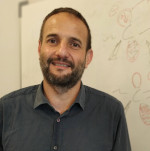
I obtained my doctoral degree in Chemistry at the Universitat Autònoma de Barcelona (UAB) in 2002 under the supervision of Agustí Lledós and Carles Bo. During the pre-doctoraI period, I made three-months stays at the groups of Odile Eisenstein (CNRS, Montpellier, France), Thomas R. Cundari (University of Memphis, USA), and Dieter Vogt (Technological University of Eindhoven, The Nederlands). Also in 2002, I was awarded with 2nd prize for Innovative Business Ideas from Catalan regional government (INNOVA program).
From 2002 to 2004 I moved to the University of Heidelberg (Germany) for a postdoctoral stay with Peter Hofmann, where I worked on the application of theoretical methods for the de novo design of homogenous catalysts, partially in collaboration with industrial partners. After a short post-doc period at the Institut Català d’Investigació Química (ICIQ), Tarragona (Spain), I obtained a Tenure Track Lecturer position at the Universitat Rovira i Virgili (URV, Tarragona, Spain), and in 2008 I was appointed Associated Professor (Professor Agregat). This latter period has included research stays as Invited Professor at the Université de Strasbourg (France, 2010 and 2011) and as Visiting Professor at University of Nottingham (UK, 2015) and King’s College London (UK, 2018).
My recent research interests has focused on the application and development of computational tools, including machine learning techniques, for the understanding and design of catalysis processes, as well as, the study of the macroscopic and dynamic behavior of inorganic nanosized clusters.
I am author of publications in scientific journals, book chapters, and patents, ORCID ID: 0000-0002-3945-6721; Research ID: L-8690-2014; Scopus ID: 7003326348.
Joan Josep Carvajal Martí (Associate Professor)

Joan J. Carvajal (ORCID No. 0000-0002-4389-7298) va obtenir la Llicenciatura en Química (1998) i el Doctorat en Química (2003) per la Universitat Rovira i Virgili (URV). Després de dos anys d'estada post-doctoral a la Stony Brook University (New York, USA) com a investigador Fulbright, s'incorpora a la Facultat de Química de la URV com a investigador Ramon y Cajal l'any 2006, esdevenint Professor Agregat del Departament de Química Física i Inorgànica de la URV l'any 2011. Ha estat Secretari Acadèmic del Departament de Química Física i Inorgànica de la URV entre 2011 i 2014. Des de 2014 es Vicedegà de la Facultat de Química de la mateixa universitat. També es membre fundador del Grup de Formadors per la Professionalització de la Supervisió Doctoral de la URV. Des de 2019 és Professor Visitant del Key Laboratory of In-Fiber Integrated Optics, associat a la Facultat de Ciències de la Harbin Engineering University (Xina). La seva recerca està centrada en la Ciència de Materials, on ha desenvolupat materials òptics i luminescents per aplicacions en espectroscòpia, làser, i biomedicina, així com materials semiconductors porosos de gap ample per aplicacions en electrònica avançada i com a sensors. En els últims anys ha treballat intensament en el desenvolupament de nanotermòmetres luminescents i agents fototèrmics per aplicacions en agricultura i biomedicina. És coautor de més de 200 publicacions en revistes especialitzades internacionals, 5 capítols de llibre, i 1 patent, i ha estat Editor Convidat a les revistes Optical Materials i Physics Procedia. Val la pena mencionar els capítols de llibre publicats en Springer Handbook on Crystal Growth sobre creixement cristal·lí per solució a alta temperatura, i a 21st Century Nanoscience - A Handbook de CRC Press sobre nanotermòmetres luminescents. Les seves publicacions han generat gairebé 2000 cites, amb un índex h de 22. Ha dirigit 8 tesis doctorals.
Línies de recerca: Síntesi de nanopartícules luminescents; creixement cristal·lí de materials òptics dielèctrics i de semiconductors porosos de gap ample; caracterització estructural; caracterització òptica, luminescent, elèctrica i tèrmica de materials.
Docència: Grau de Biotecnologia: Física I (problemes), Física II (problemes); Grau de Química Cristal·lografia (laboratori en català i en anglès), Ciutadania (en català i en anglès), Nous materials i nanociència (en anglès), Nucleació i creixement cristal·lí; Màster en Nanociència, Materials i Processos: Tecnologia Química de Frontera: Ciència i Enginyeria de Materials (en anglès), Superfícies i nanoestructuració (en anglès); Màster en Formació del Professorat d'Educació Secundària Obligatòria i Batxillerat, Formació Professional i Ensenyaments d'Idiomes: Aprenentatge i ensenyament en Biologia i Geologia, Complements de formació en Geologia; Màster en Eines pel Desenvolupament Professional a la Industria: Business Awareness
Carla Casadevall Serrano(Ramón y Cajal )
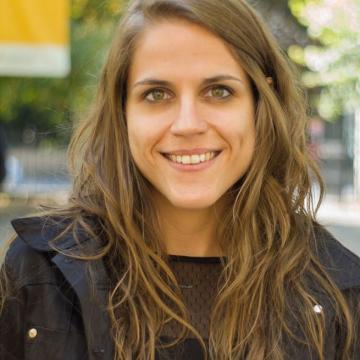
Dr. Casadevall was born in Palafrugell-Girona (Spain) in 1991 and is currently a Ramón y Cajal fellow and a Junior Group Leader at the Universitat Rovira i Virigli (URV) and the Institute of Chemical Research of Catalonia (ICIQ) (Tarrgona, Spain), working on the development of catalyst-functionalized polymeric microreactors for the production of solar fuels and chemicals within the fields of artificial photosynthesis and photoredox catalysis. She obtained a BSc in chemistry (2013) and a MSc (2014) in Advanced Catalysis and Molecular Modelling at the University of Girona (Spain). Then she moved to ICIQ to do a PhD (2015-2019) working on homogeneous systems for artificial photosynthesis and photoredox catalysis. During that time, she performed 4 PhD international internships: KTH Royal Institute of Technology (Sweden), Arizona State University (USA), University of Groningen (Netherlands) and MPI-CEC (Germany). After obtaining her PhD she joined the University of Cambridge (UK) in September 2019 as a BBSRC postdoctoral research associate and later as a Marie Marie Skłodowska-Curie Individual Fellow (2020-2022) working on biohybrid systems for artificial photosynthesis. In October 2022 she came back to Spain and started her independent career with a "La Caixa Junior Leader Incoming Fellowship" and recently with a Ramón y Cajal at ICIQ and URV.
Overall, in her 9 years of research career (since the beginning of the master's) she has worked in 8 internationally recognized institutions (University of Girona, ICIQ, URV, ASU, MPI-CEC, KTH, University of Groningen, University of Cambridge) in 6 different countries (Spain, Sweden, US, Netherlands, Germany, UK). She has authored 30 scientific papers in top tier international journals (Nature Chemistry, Chem, J. Am. Chem. Soc., Angew. Chem. Int. Ed.), including 2 book chapters, and has 2 granted patents, from which one is licensed and transferred to a spin off company that is industrializing it. Carla has given over 20 talks in national and international conferences, from which 9 as invited speaker. She has participated in more than 10 national and international projects and she is currently the Enterpreneour PI of the project PHOTOSCALE (FEDER AGAUR 2021 PROD 00043) and PI of the Ramón y Cajal (RYC2021-030935-I). And she has recently been awarded with the "Young Investigator Prize 2023" from the Spanish Royal Society of Chemistry (RSEQ) and the "Emerging Scientific Talent Prize 2023" from the Catalan Chemical Society (SCQ) for her academic career and her emerging leadership.
carla.casadevall(ELIMINAR)@urv.cat ![]()
Yolanda Cesteros Fernández (Catedràtica de Universitat )
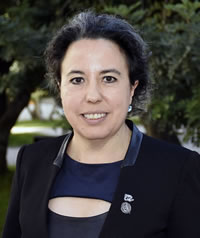
Doctora en Química per la Universitat Rovira i i Virgili (1997). Ha publicat més de 100 articles en revistes científiques internacionals, ha presentat més de 130 comunicacions a congressos, ha participat en més de 60 projectes amb finançament públic i privat i ha codirigit 11 tesis doctorals
Línies de recerca: 1) Ús de noves tecnologies (microones i ultrasons) en la preparació i modificació de catalitzadors; 2) Valorització de biomassa (residus agroalimentaris) i revalorizació de la glicerina (excedent en la producció de biodiesel) mitjançant la seva transformació catalítica en productes d’alt valor afegit.
Docència: Professora del Grau de Química, Grau de Química en anglès i Màster en synthesis, catalysis and molecular design.
Anna Clotet Romeu (Titular d'Universitat)
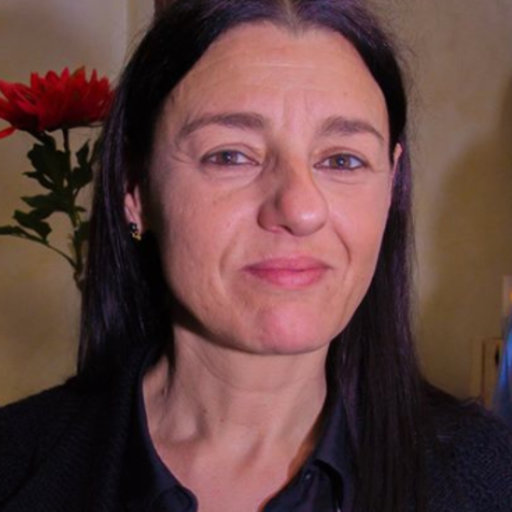
Coen de Graaf (ICREA research professor)
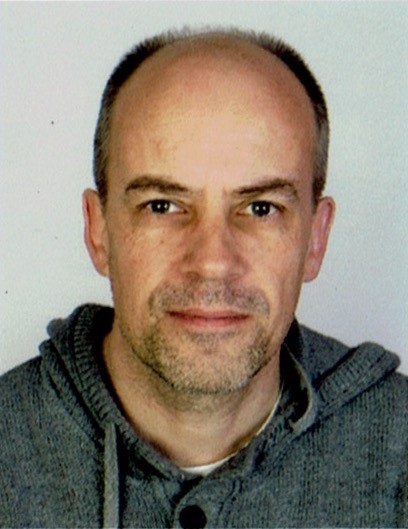
Doctor en: Matemàtiques i Cienciès Naturals (Química Teòrica)
Línies de recerca:
- Development of GronOR, a program for Non-Orthogonal Configuration Interaction
- Light-induced magnetism and excited state dynamics
- Multconfigurational electronic structure calculations of endohedral fullerenes and polyoxometalates
Docència:
-Theoretical Methods for determining electronic and molecular structure, URV/ICIQ Master in Synthesis, Catalysis and Molecular Design
-Advanced electronic structure methods, European Master in Theoretical Chemistry and Computational Modelling
Francesc Díaz González (Catedràtic de Universitat)
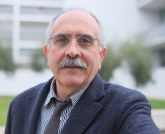
Francesc Diaz is Full Professor of Applied Physics and Vicerector of Research at the University Rovira I Virgili (URV)of the same university. His research expertise is in the field of photonics and optical materials. In this topics he has published about 600 peer reviewed papers, 5 books, 6 registered and transferred patents and more than 80 chapters of books. He was the PI of more than 90 R+D+i projects funded by public institutions 8 of them funded by EU. He was distinguished by Spanish institutions with ICREA Academia Award (2010), Excellent teaching URV Award (2010), Distinguished Professor URV Award (2006) and Vicens Vives Award(2004).
f.diaz@urv.cat
Montserrat Diéguez Fernández (Full professor of University, Catedràtica de Universitat)
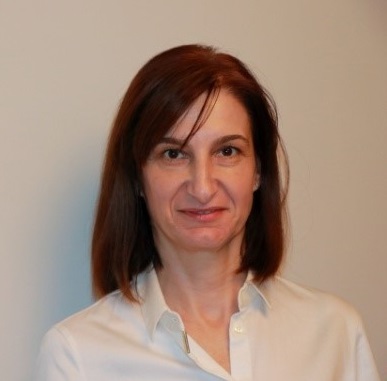
Prof. Montserrat Diéguez studied chemistry at the Rovira i Virgili University (URV) in Tarragona, where she received her Ph.D. in 1997 working in the group of Prof. C. Claver. After she moved to the Yale University with Prof. R.H. Crabtree (USA). She returned to Tarragona and becoming part of the permanent staff of the URV in 2002. In 2011 she was promoted to full Professor in Inorganic Chemistry. She is the chair of InnCat research group at URV. She has been involved in more than 60 research projects in the field of organometallic chemistry, steroselective synthesis, asymmetric catalysis and metalloenzymes. She is author of more 150 scientific articles and 14 books/book chapters with an H index of 41. She has supervised 11 doctoral thesis, 10 received the mention of European/International PhD and 4 were awarded with the URV's PhD Prize. She obtained the Distinction from the Generalitat de Catalunya for the promotion of University Research in 2004-2009 and in 2008 from the URV. She has received an ICREA Academia in 2009-2014 and 2015-2020 from the Catalan Institution for Research and Advanced Studies, for research excellence and leadership. My main research interests are focused on the sustainable design, synthesis and screening of highly active and selective chiral catalysts for reactions of interest in the biological, pharmaceutical and organic nanotechnological industry. Her areas of interest include organometallic chemistry, steroselective synthesis and asymmetric catalysis using combinatorial and biotechnological approaches.
montserrat.dieguez@urv.cat
Maria Elena Fernández Gutiérrez (Catedràtica de Universitat)
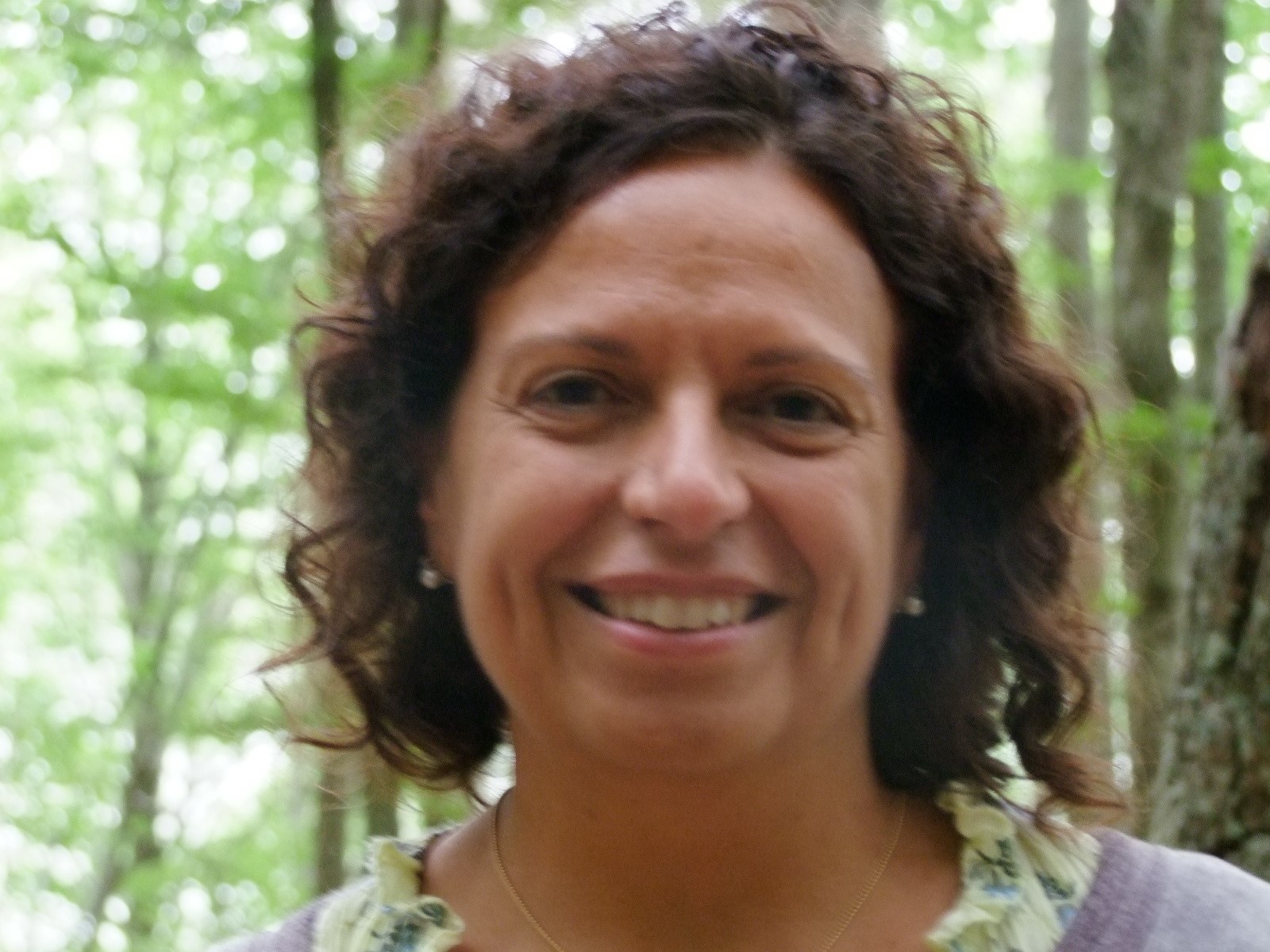
Elena Fernández received her degree in chemistry at the University of Barcelona in 1991. She did PhD studies in catalytic hydroformylation of sugars with Prof. S. Castillón (1991-1995) and she moved to Oxford University (UK) (1995-1997) for a postdoctoral position with Prof. John M. Brown where her studies culminated with an approach towards the first catalytic asymmetric hydroboration-amination reaction. Elena accepted in 1997 a lecturer position at the University Rovira i Virgili, becoming part of the permanent staff in 2000 and Full Professor in 2019. She received the Award on Excellence of Research in Organometallic Chemistry 2014 and the Award on Excellence of Research in Chemistry 2017, both from the Spanish Royal Society of Chemistry. She is Distinguished Professor at the URV from 2018. She has contributed to more than 140 seminal articles, reviews and book's chapters, highlighting the edition of two books on Synthesis and Applications of Organoboron Compounds for Springer (2015) and Advances in Organoboron Chemistry toward Organic Synthesis for Science of Synthesis-Thieme (2019).
Research lines: Activation modes of borane reagents to be used in selective organic synthesis of multifunctional compounds.
The research in the catalytic organoborane chemistry line is directed towards the development of atom-efficient, low-waste processes for the synthesis of high added value organoborane products with a special emphasis on the asymmetric version of the catalytic boron-addition reactions. Within this framework we strive to meet scientific challenges in combination with application-oriented research.
These goals are pursued via six research topics:
- Study of catalytic boron addition reactions (hydroboration, diboration,b-boration) to alkenes and alkynes by using inexpensive transition metals.
- Asymmetric approaches towards chiral organoboron synthesis. Use of alternative chiral ligands.
- Development of catalytic tandem organic sequences through selective boron addition chemistry.
- Mechanistic studies of the catalytic processes combined with theoretical studies.
- Organocatalytic approaches to boron addition reactions.
- Synthesis of target organoboron compounds.
Key words
Homogeneous catalysis, Boron chemistry, Organoborane synthesis, Chiral organoboranes, Pinacolborane, gem-Diboron reagents, Tandem organoborane reactions
Docència: ....
Fina Gavaldà Martínez (Catedràtica de Universitat)
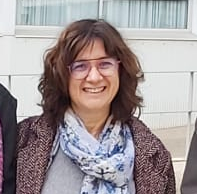
Doctor en Ciències Físiques
Línies de recerca: Processat digital de senyals a l'Espai, simulació de processos físics complexos en condicions de microgravetat.
Docència: Assignatures de física en diversos graus i màsters
Cyril Godard (Associate Professor )
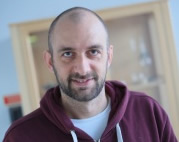
Luca Guerrini (Associate Professor)

PhD degree in Physical Chemistry cum laude from the Universidad Autonoma de Madrid (Spain). His postdoctoral research was carried out in several institutions, including the University of Strathclyde (UK), University of Vigo (Spain), and Universitat Rovira I Virgili (Spain) as a Marie Curie Intra-European fellow. He is currently a Ramon y Cajal Researcher and member of the Ultradetection and Plasmonics Group (Zeptonic).
Research lines
Dr. Guerrini's research connects key areas of nanobiotechnology and nanophotonics, providing an interdisciplinary approach by combining physics, chemistry, and advanced nanofabrication techniques to develop novel applications. His current scientific interests are mainly focused on the development of nanophotonic-based devices for ultrasensitive environmental and diagnostic applications.
Teaching:
Dr. Guerrini is a professor in Chemistry (subject: Chemistry I). In addition, the researcher actively participates in the training of young scientists supervising and advising final degree projects (4 defended) and doctoral theses (3 defended and 1 in progress).
Bahareh Khezri (Ramón y Cajal )

Dr. Bahareh Khezri studied Chemistry at Isfahan University of Technology and Isfahan University, as BSc (1999-2001) and MSc (2003-2006) in Iran. In 2008 she was granted the prestige Singapore International Graduate Award (SINGA). As a result, she joined the distinguished research group of Professor Richard D. Webster at Nanyang Technological University, Singapore, for my PhD (2008-2012), where she conducted research on the chemical composition of airborne particulate matter (PM2.5 and PM10), aerosols (PM2.5), inorganic trace gases, and precipitation in Singapore which involved close collaboration with the world-leading instrumental chemistry companies Agilent, Waters and Metrohm. After finishing her PhD, she was granted A*STAR postdoctoral fellowship (2012-2014). Where she made a significant shift in her research focus from analytical (instrumental) chemistry to electrochemistry. In January 2015, she joined the Cambridge Centre for Advanced Research and Education in Singapore (CARES). This Cambridge Centre research program served the Carbon Reduction in Chemical Technology (C4T) initiative. She was involved in the research of the group "Electrochemical Multi-scale Science, Engineering and Technology (EMSET)" where she targeted the development of multi-scale electroanalytical tools for the investigation of catalytic reactions and the adoption of electro-synthesis as a potential source for clean and selective routes for chemical production. she underwent specialized training in microfluidic and reactor fabrication at the University of Cambridge under supervision of Prof. Adrain C. Fisher. In November 2017, she moved to Advanced Functional Nanorobots Centre directed by Prof Martin Pumera at University of Chemistry and Technology, Prague (VSCHT) where she gained more experience in 2D-materials, synthesis and exfoliation, water splitting, 3D printing and synthetic micro/nanorobots. In December 2019, she received a research grant from the Czech Science Foundation (GACR) and appointed as Principal Investigator at Inorganic Department of University of Chemistry and Technology, Prague to lead her own research group. After receiving the Beatriu de Pinós fellowship in 2021, in November 2021 she moved to "Institut Català d'Investigació Química" to expand her expertise in energy application in the research group of Prof. Jose Ramon Galan Mascarós where she also learned about polyoxometalate as promising molecular catalyst.
Currently, Dr. Bahareh Khezri is holding a joint appointment as "Ramon y Cajal Investigator" at URV and "Associated Researcher" at ICIQ. She is the head of the "Smart multi-Functional Materials for Green Energy and Robotics: SFM-GE&R" research group, which operates at the forefront of nanoscience. SFM-GE&R focuses on designing and developing hybrid multifunctional materials for energy-related applications such as water splitting and CO2 reduction, as well as artificial self-propelled micro/nanorobots for various purposes. The group's research interests are centred around creating functional nanostructured hybrid materials and using them as photo/electrocatalysts for energy applications, and using them as scaffolds for encapsulating, storing, reacting, collecting, degrading, and delivering molecules of interest. SFM-GE&R's main contributions are in the design and development of hybrid functional materials, including doped/functionalized 2Ds beyond graphene and sustainable materials, which have countless applications in Energy, Catalysis, the Environment, and Life Science.
bahareh.khezri@urv.cat
Xavier López (Associate Professor )
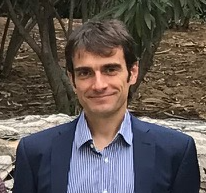
BsC. in Chemistry at the Universitat de Barcelona (1999) and PhD in Chemistry at the Universitat Rovira i Virgili (2003). He started his research career in the field of Computational Chemistry studying the electronic structure, the electrochemical properties and the acidity-basicity ofclassical polyoxometalates (Keggin and Wells-Dawson) applying the DFT method of calculation. Later he studied many other aspects of these molecules: reactivity, NMR of oxygen and phosphorus, relative stability of isomers, magnetism, dependence of the redox properties with the composition, size and charge of the system, encapsulation of small species, and lastly the adsorption in gold surfaces of some polyoxovanadates and their conductivity with periodic methods. He is also interested in the dynamical behaviour of polyoxometalates in solution (aggregation, formation of ionic pairs, interactions with the solvent). One of the present focus of interest is the capture of solar radiation by functionalized polyoxometalates for the clean generation of hydrogen. Between 2004 and 2006, during the postoc stay at the Université Louis Pasteur (Strasbourg, France) with Profs. Marc Bénard y Marie-Madeleine Rohmer, he analized the extended metal atom chains (EMACs), particularly the magnetism and its dependence with the ligands and the composition of the metal chain. He has analyzed with several computational techniques the electronic and magnetic properties, and also the dynamic behaviour of the chain to explain certain experimental facts with an involved interpretation. I have been the coordinator of the BsC. Degree in Chemistry in the period 2014-2022. Presently, I am the vice-dean of the Faculty of Chemistry of the URV.
Research lines: electronic structure and various properties of polyoxometal·lates and of molecular wires.
Teaching: Bachelor's Degree in Chemistry (subjects of the Physical Chemistry area): FORTRAN programming, Chemical Bonding, Applied Electrochemistry, Computational Chemistry (in English), Spectroscopy and Chemical Kinetics (in English), Physical Chemistry laboratories; Master's Degree in Training for Teachers of Compulsory Secondary Education and Upper Secondary Education. He supervises End of Degree Works in the BsC. and the MsC. degrees.
Anna M. Masdeú Bultó (Catedràtica de Universitat)
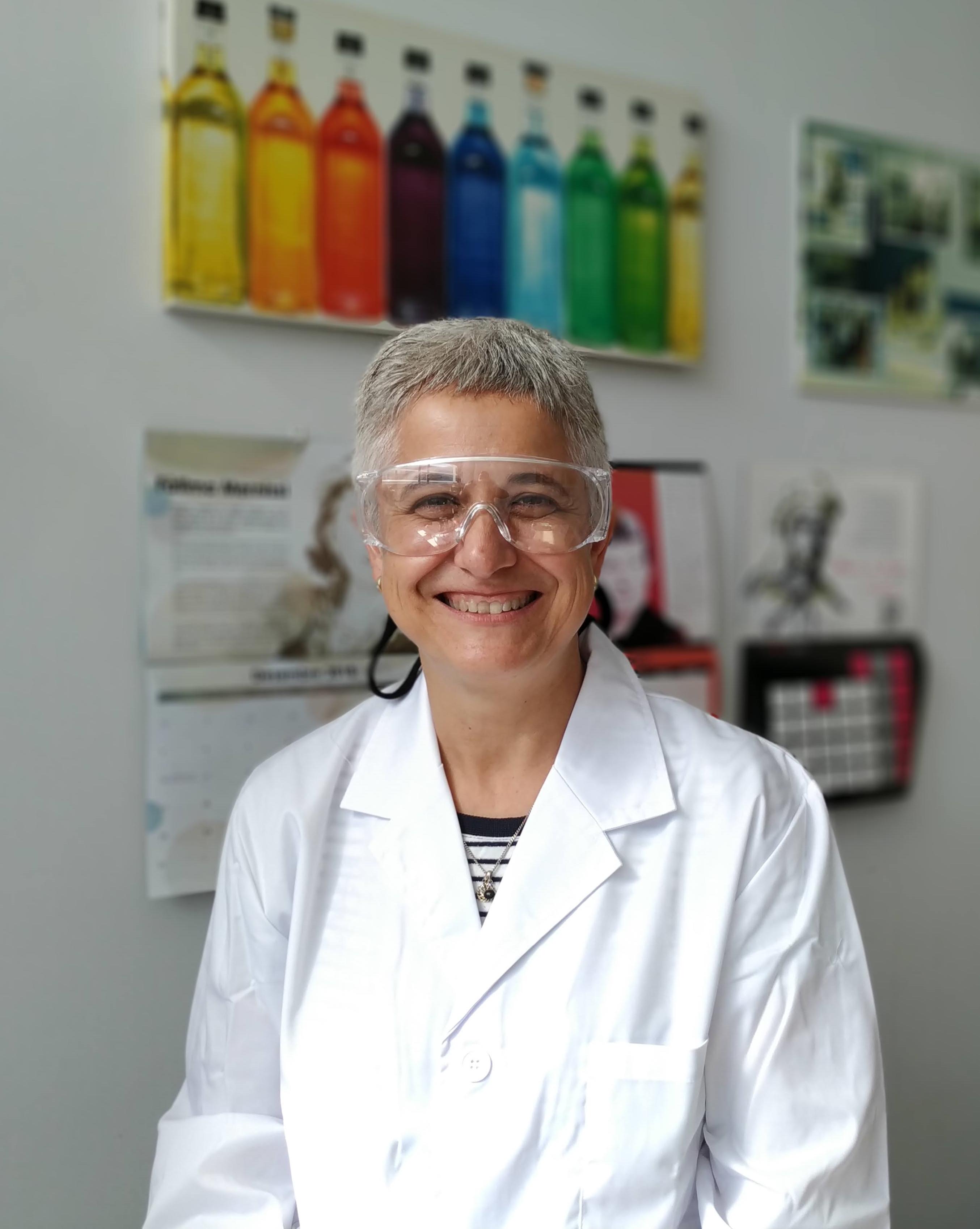
Anna M. Masdeu-Bultó (born in Reus, PhD in 1992 at the Chemistry Faculty, Tarragona) is Profesora Titular de Universidad of Inorganic Chemistry in the Physical and Inorganic Chemistry Department at the University Rovira i Virgili since 1996. Her research interests in Chemistry are focused on the metal based complexes as catalysts for carbonylation (hydroformylation, alcoxycarbonylation, copolymerization CO/alkene), hydrogenation and other processes. Her research is especially devoted to the use of environmental low impact solvents such as water and carbon dioxide. Related to this later subject, since 2002, she is studying the possibilities of using carbon dioxide as a solvent in catalytic reactions and as a C1 building block for the synthesis of organic carbonates.
Research lines: Transformation of carbon dioxide
Teaching: Inorganic Chemistry (Grado Química, Degree of Chemistry)
Master's Degree in Training for Teachers of Compulsory Secondary Education and Upper Secondary Education, Professional Training and Language Teaching.
Jaume Masons Bosch (Catedràtic de Universitat )
Xavier Mateos Ferré (Catedràtic de Universitat)

Professor Xavier Mateos is a senior researcher and Full Professor at the Rovira i Virgili University with 20 years of experience in materials' science and laser physics. Solid state lasers (thin-disk, microchip and waveguide lasers) and materials (laser crystals and ceramics, and multifunctional 2D materials) are his major fields of interest together with mode-locked ultrashort laser pulses developed during his postdoctoral stay (2004-2006) at the Max Born Institute for Nonlinear Optics and Ultrafast spectroscopy, MBI in Berlin, Germany. He also was Marie Sklodowska-Curie fellow for the development of a novel 2-μm thin-disk laser.
Prof. Mateos belongs to the Physics and Cristallography of Materials group of research, FiCMA. As a result of his investigation, he has co-authored 260 scientific articles in peer-reviewed scientific journals being cited 6192 times which makes a h-index of 41. Prof. Mateos has supervised a total of 6 doctoral theses and currently 4 more are under supervision.
Línies de Recerca:
Development of novel thin-disk structures for use in high average and peak power all-solid-state laser systems
Development of microchip lasers for use in
Development of waveguide structures and waveguide lasers to develop more sophisticated and cutting-edge optical sensors in combination with microfluidics.
Docència:
Physics (Chemistry and Oenology degrees).
Física i Física de les intal·lacions (degree of Architecture)
Materials Science and Engineering (Master in Nanoscience, Materials and Processes: Chemical Technology at the Frontier)
Surfaces and Nanostructuring (Master in Nanoscience, Materials and Processes: Chemical Technology at the Frontier)
Oscar Pámies Ollé (Catedràtic de Universitat)
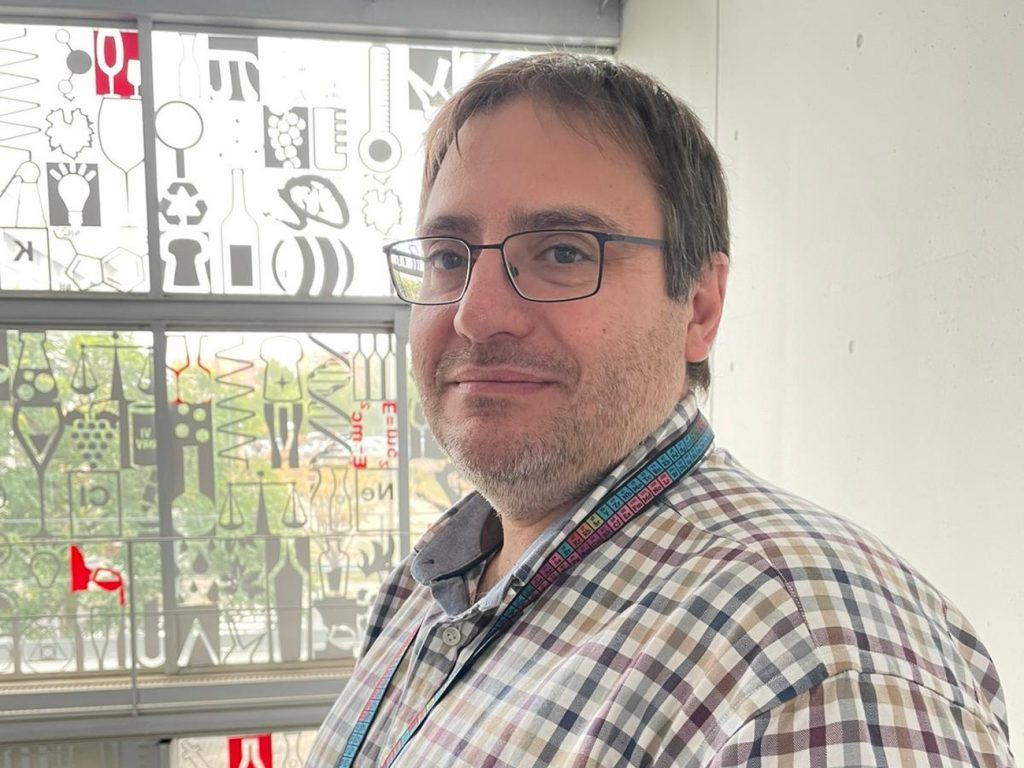
Nicolás Pazos Perez (Associate Professor)
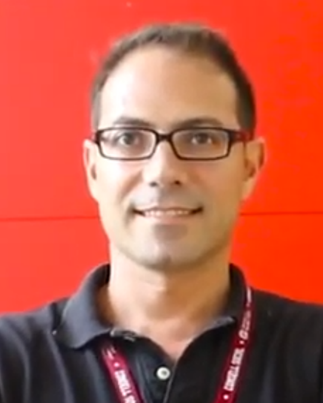
Nicolas Pazos-Perez has a Chemistry BSc degree from the University of Vigo. During his Ph.D. studies he was involve in a Marie Curie Research Training Network and therefore, was moving between Spain, France and Germany. He received his Ph.D. degree in Physical Chemistry in 2008 from the University of Vigo. After a short period as postdoc at Vigo, he joined the Department of Physical Chemistry II at the University of Bayreuth (Germany) and, almost 5 years later, he moves back to Spain (Tarragona), and become a Senior Researcher officer at Medcom Advance. In 2014 he became a Marie Curie Fellow to join the Zeptonic group (Department of Physical and Inorganic Chemistry) at the University Rovira i Virgili (URV). In 2016 he joined Medcom Tech as Senior Researcher officer. Currently (since 2017) he is back at the URV as a Ramon y Cajal researcher in the Zeptonic group.
Línies de recerca: He is focused in the wet chemical synthesis of plasmonic nanoparticles controlling their shape and size, so as their functionalization, coatings, and self-assembly into ordered structures either at the nano and macro scales. Therefore, controlling the individual and collective plasmonic response of the produced nanomaterials. One of his principal aims is to produce and develop new highly efficient SERS-encoded nanoparticles and substrates for sensing and detection.
Docència:
- General Chemistry at the Double Degree in Biomedical Engineering and Telecommunications Systems and Services Engineering (2019).
- General Chemistry at the Degree in Biomedical Engineering (2017 and 2018)
- TFG at the Degree in Chemistry (2019)
- Doctoral Program in Nanoscience, Materials and Chemical Engineering (NANO SCIENCE, MATERIALS AND CHEMICAL ENGINEERING)
Josep M. Poblet Rius (Catedràtic de Universitat)
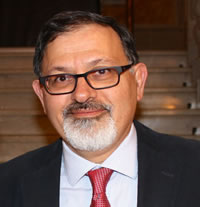
Josep M. Poblet was awarded his degree in Chemistry in 1979 from the University of Barcelona. From the same university he obtained his PhD degree in 1983 on theoretical studies of kinetic isotopes effects in organic reactions under the supervision of Professor Enric Canadell. In 1984, he made a postdoctoral research stay with Professor Marc Bénard at the Strasbourg University, where he had the opportunity to learn about the computational modelling of inorganic systems. He became Associate Professor in Physical Chemistry at the Rovira i Virgili University (Tarragona, Spain) in 1986. Since 2001 he is Professor of Physical Chemistry at this university. He made a research stay in the group of Professors Keiji Morokuma and Jamal Musaev at the Emory University in 2004 and has been Director of the Physical and Inorganic Chemistry Department for 12 years. He has published about 250 peer-review and has supervised 18 doctoral theses. Josep M. Poblet was awarded with the 2012 Physical Chemistry award of the "Real Sociedad Española de Química" and was named Distinguished Professor of the University Rovira i Virgili in 2014. In 2015, he was awarded with the ICREA ACADEMIA prize for research excellence. His current research focusses on theoretical inorganic chemistry with particular interest in the electronic structure, reactivity and self-assembly of complex systems. He has extensive experience in the computational modeling of molecular metal oxides (or polyoxometalates) that are a vast family of transition metal oxides with applications in many fields, such as materials science, homogeneous and heterogeneous catalysis, spintronics, medicine, and analytical chemistry among many others. He is also interested in the study of high temperature formation mechanisms of fullerenes and metalofullerenes and, in general, in the structural, physical and chemical properties of carbon nanoforms.
Cinta Pujol Baiges (Catedràtica d'Universitat)
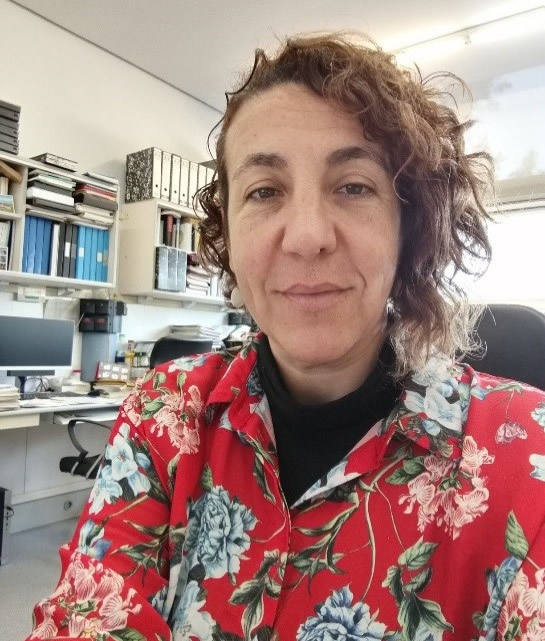
Maria Cinta Pujol és membre del departament de Química Física i Inorgànica, Facultat de Química. La carrera investigadora del M. C. Pujol va començar el 1997. M.C. Pujol es va graduar a la URV amb una llicenciatura en Química el 1996 i posteriorment va obtenir un doctorat a la mateixa universitat al 2001. La recerca durant el seu doctorat es basava en el creixement cristal.lí de materials dopats en lantànids i les seves caracteritzacions per aplicacions làser. Des d'aquest moment ha treballat sempre en el camp de la ciència de materials i més especialment, amb materials òptics. Va realitzar una etapa de postdoctorat a l'Institut de Transuranium Elements (Karlsruhe, Alemanya), durant 2002 i 2003. En els anys 2004-2008, va liderar el seu propi projecte relacionat amb la síntesi de nanocristalls i la seva caracterització en el marc del programa RyC. Ha publicat com a coautora en revistes internacionals (al voltant de 140 publicacions fins 2020). Ha dirigit 9 tesis doctorals. Ha col·laborat en tasques de divulgació tals com fires de divulgació de la ciència, el concurs de créixer cristalls a l’escola, etc. Com a tasques avaluatives, ha participat en avaluar en recerca projectes d’altres països, això com avaluadora per la Comissió Europea, a més a més d’actuar de tribunal en diferents tesis. Actualment és professora agregada del DQFI, al a FQ, de la Universitat Rovira i Virgili.
Línies de recerca: Síntesis i caracterització física i química de nanocristalls. Espectroscòpia Óptica.
Docència: Física de primer curs en els ensenyaments de de la facultat Química i Escola d’arquitectura, Física de les instal·lacions de 2on curs a l’escola d’arquitectura, Cristal·lografia 2on curs a la facultat de Química, assignatures optatives de quart del grau de química relacionades amb nous materials i materials cristal·lins, Assignatura de Física Forense del màster universitari en genètica, física i química forense; Assignatures relacionades amb materials òptics, i tècniques de caracteritzacions al màster universitari en Nanociència, Materials i Processos: Tecnologia Química de Frontera i finalment assignatures relacionades amb els continguts i la didàctica de la Geologia a secundaria en el Màster universitari en Formació del Professorat d’Educació Secundària Obligatòria i Batxillerat, Formació Professional i Ensenyaments d’Idiomes . Tutories i direccions de TFG i TFM dels diferents ensenyaments ja anomenats.
Mar Reguero de la Poza (Catedràtica de Universitat)
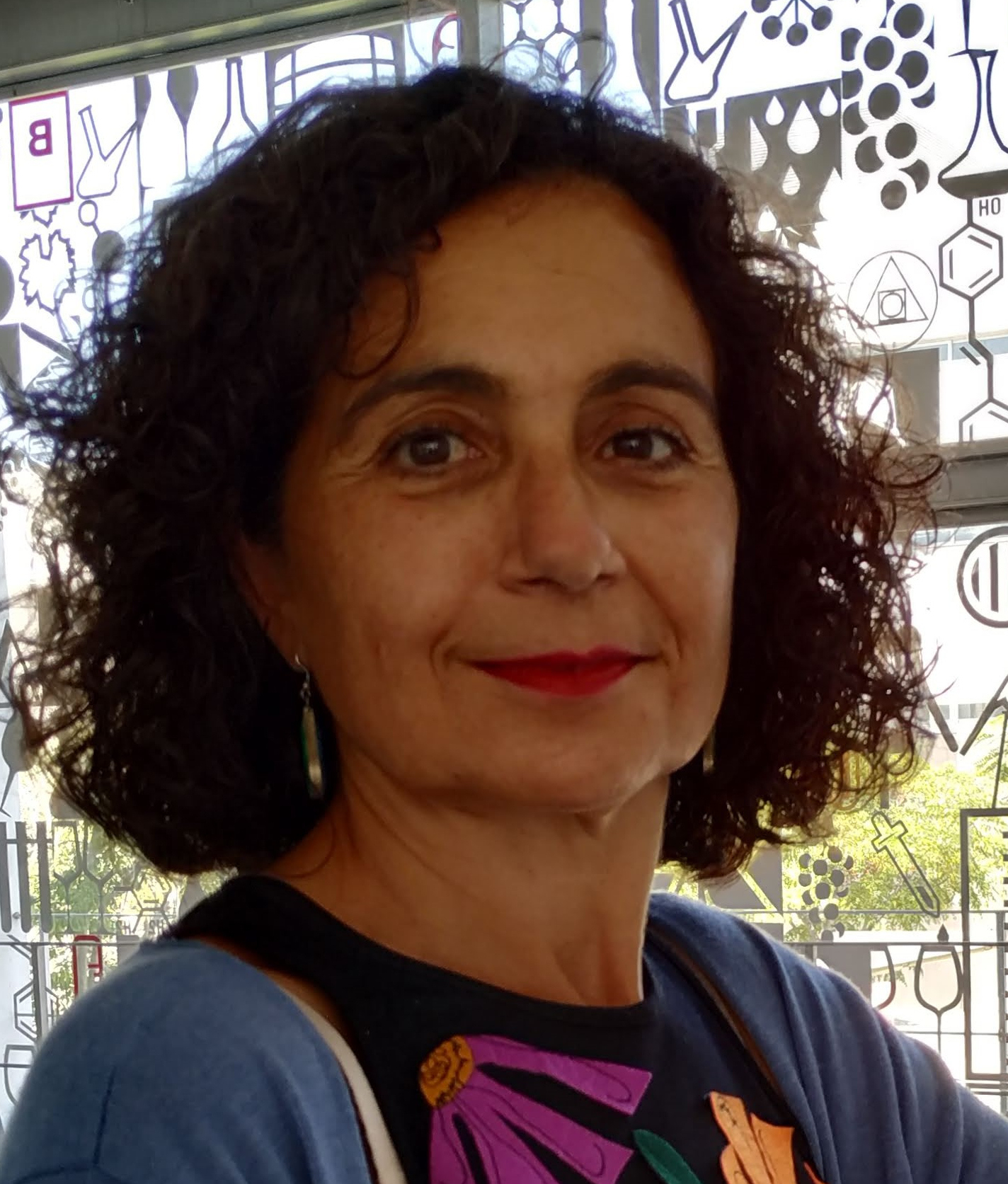
PhD in Chemical Sciences (1989), she studied at the Universidad Complutense of Madrid. She worked as a postdoctoral researcher at King's College London, UK (1990), at the Spanish Research Council, Madrid (1991) and for Daresbury Laboratory, UK (1992).
In 1993 she enrolled at the Department of Physical and Inorganic Chemistry of the Universitat Rovira i Virgili (URV at Tarragona, Spain), being Associate Professor since 1997. Her research in the Chemistry field, as a member of the Quantum Chemistry group of URV, is focused on the computational elucidation of mechanisms of photochemical and catalytic reactions.
Josep Manel Ricart Pla (Catedràtic de Universitat)
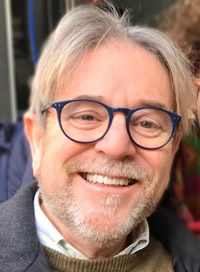
Josep M. Ricart was awarded his degree in Chemistry in 1980 from the University of Barcelona. From the same university, he obtained his Ph.D. degree in 1985, studying the applications of band theory to solids (graphite, diamond, silicon) and surfaces, their reconstruction and chemisorption of atoms thereon using semiempirical approaches, in particular he developed a periodic version of the MINDO/3 method. The thesis was done under the supervision of Professor F. Illas. He began his academic carrier at the University of Barcelona (1981). In 1985 he obtained a position in Tarragona. He did short postdoctoral stages with Prof. Pisani (Torino, 1986), Prof. Pacchioni (Milano 1994) Prof. Roesch (Munich, 2001, 2003). He became Associate Professor in Physical Chemistry at the UB, Tarragona's Campus, in 1988. He is Full Professor (at the Universitat Rovira i Virgili since 2002.
He has published more than 125 peer-review articles, more than 60 communications in conferences, 10 book chapters. He has been supervisor or co-supervisor of 10 doctoral theses. Papers have been published in collaboration with more than 100 co-authors.
He has been Vice-Dean of the Faculty of Chemistry from 1998 to 2004; Dean from 2004 to 2006. Vice-rector for Academic Policy and Research from 2006 to 2014; Vice-Rector for Scientific Policy and Research from 2014 to 2018. He has been member of the board of several research institutes and foundations. Now, he is coordinator of the Master in Synthesis, Catalysis and Molecular Modelling.
Línies de recerca: Computational chemistry applied to heterogeneous catalysis on surfaces, nanoparticles and on single supported atoms.
Docència: Chemical thermodynamics. Chemical kinetics.
Toni Rodríguez-Fortea (Catedràtic de Universitat )

Antonio Rodriguez-Fortea graduated in Chemistry in 1996 at the University of Barcelona.
In 2001, he obtained his PhD degree from the same university under the supervision of Prof. Pere Alemany in the research group of Prof. Santiago Alvarez. Afterwards, he did a post-doctoral stay of two years in the group of Prof. M. Parrinello (ETH Zurich) in Lugano.
At the end of 2004, he joined the group of Prof. J. M. Poblet at the Rovira i Virgili University (Tarragona) as a Tenure-Track Lecturer in Physical Chemistry.
In 2006 he obtained a Ramón y Cajal contract to work in the same group and since 2011 he is an Associate Professor in Physical and Inorganic Chemistry department at the same university.
His research field is theoretical inorganic chemistry with special interest in endohedral metallofullerenes and other carbon nanoforms, NMR properties and formation mechanisms of polyoxoanions, dynamic processes in molecular rotors and exchange coupling in polynuclear and extended structures.
Núria Ruiz Morillas (Titular d’Universitat)
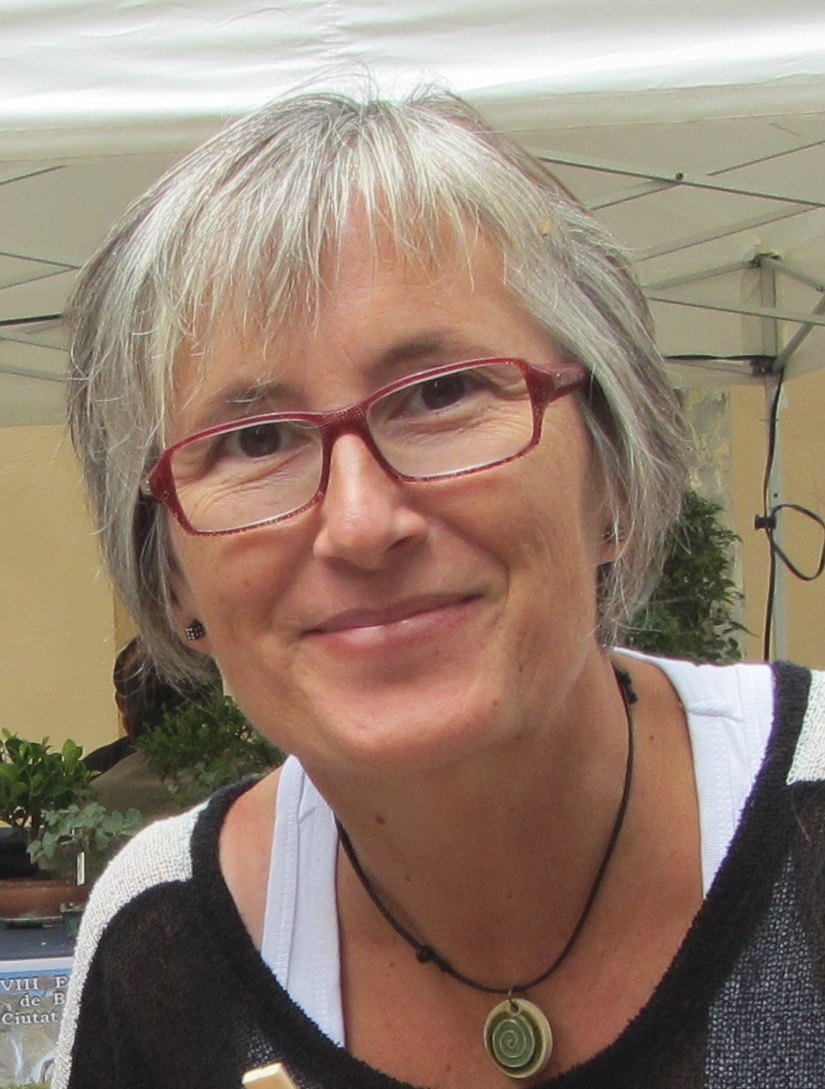
Xavier Ruiz Martí (Catedràtic de Universitat)
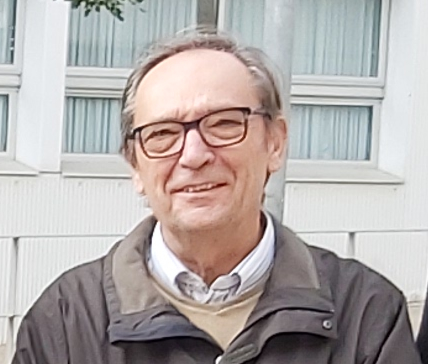
Mireia Segado Centellas

Dr. Mireia Segado Centellas is currently a researcher at Universitat Rovira i Virgili, working in the group led by Prof. Maria Besora. Her research focuses on the development of microkinetic models for catalytic water oxidation systems, as well as on the description and simulation of interactions between organic and inorganic ions.
She did her Ph.D. at the Universitat Rovira i Virgili in the Computational Photochemistry group led by Prof. Mar Reguero. During this period, she investigated photochemical mechanisms in organic systems with intramolecular charge transfer using ab initio multiconfigurational methods. She received an international distinction for her Ph.D. due to her research stay in the laboratory of Prof. Wolfgang Domcke in Munich, where she studied relativistic Jahn-Teller couplings. After defending her thesis with an Excellent Cum Laude qualification, she continued her research on larger photovoltaic systems at the Scuola Normale Superiore di Pisa in the group led by Prof. Vincenzo Barone, collaborating on a national Italian project with Dr. Fabrizio Santoro and Prof. Chiara Cappelli, making key contributions to two-dimensional transient infrared spectroscopy and excited-state gradients.
Her interest in solvation processes led her to the group of Prof. Carles Bo at the Institute of Chemical Research of Catalonia (ICIQ), where she worked on a project funded by the United States Department of Energy. During this 7-year period, during which her two daughters were born, she made significant contributions in the field of polyoxometalates, the solubility of inorganic ions, and speciation models, publishing her results in top scientific journals.
Currently, she is co-director of the doctoral thesis of Jordi Buils (ICIQ) and has prior experience supervising Ph.D., master's, and undergraduate students. Throughout her career, she has published 30 scientific articles (ORCID ID: 0000-0002-1290-6403). In the last two years, she has published in top-decile journals, with 5 articles in Chemical Science and 2 publications in Angewandte Chemie.
mireia.segado(ELIMINAR)@urv.cat #segado
Rosa Solé Cartañà (Professora Titular Universitat)

Llicenciada en Ciències Físiques per la Universitat de Barcelona (1989) i doctora en Ciències Físiques per la mateixa universitat (1994). Es va incorporar a la Universitat Rovira i Virgili l'any 1990 com a professora Ajudant, posteriorment va ser Professora Titular d'Escola Universitària i des de l'any 2003 és professora Titular d'Universitat. Els seus interessos són el creixement de monocristalls i de capes epitaxials a partir de solució a alta temperatura i l'obtenció de micro i nanocristalls de materials làser i d'òptica no-lineal. La caracterització morfològica, composicional, estructural, tèrmica i òptica dels cristalls obtinguts també forma part dels seus interessos.
Línies de recerca: Creixement de monocristalls, capes epitaxials i nanocristalls. Estudi morfològic, composicional, estructural, propietats tèrmiques i caracterització òptica de cristalls.
Docència: Docència de la Física en els graus de Química, Bioquímica i Biologia Molecular, Biotecnologia i dos dobles graus. També participa en la docència de la Física en el grau d'Enologia i les pràctiques de laboratori de Física de l'ensenyament d'Arquitectura. Participa també en la docència del màster en Nanociència, Materials i Processos: Tecnologia Química de Frontera i en el màster de Formació de Professorat d'Educació Secundària Obligatòria i Batxillerat.
